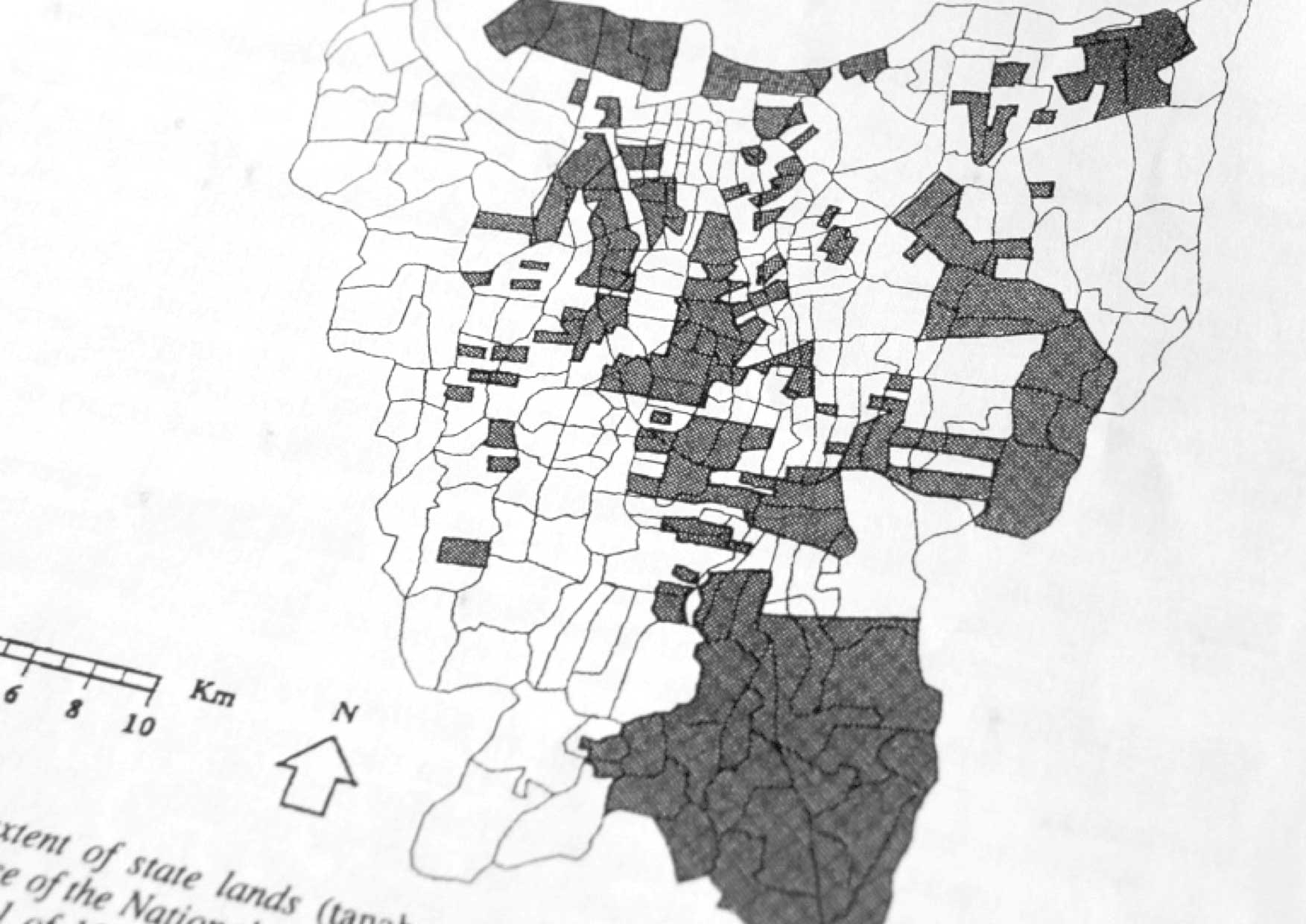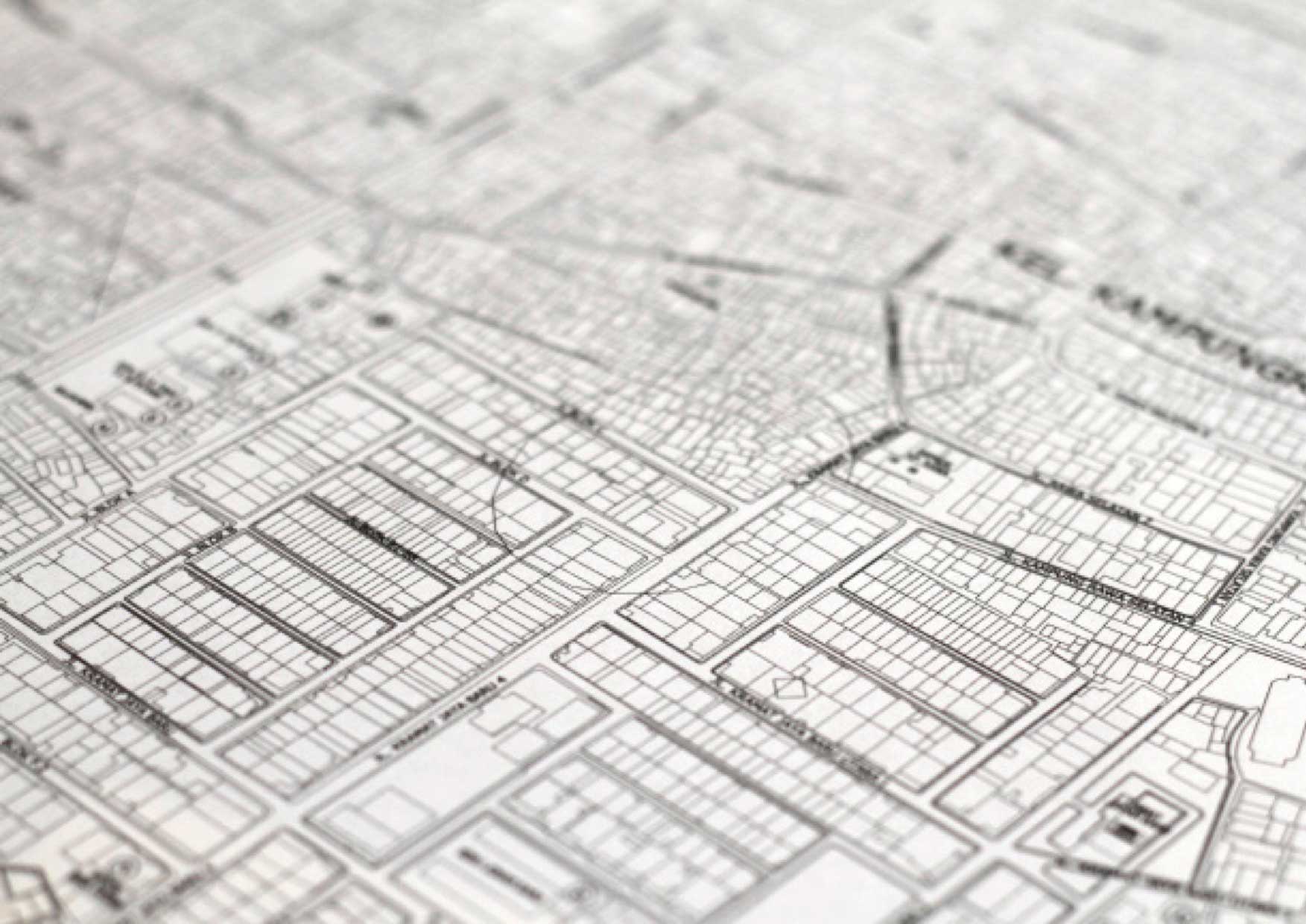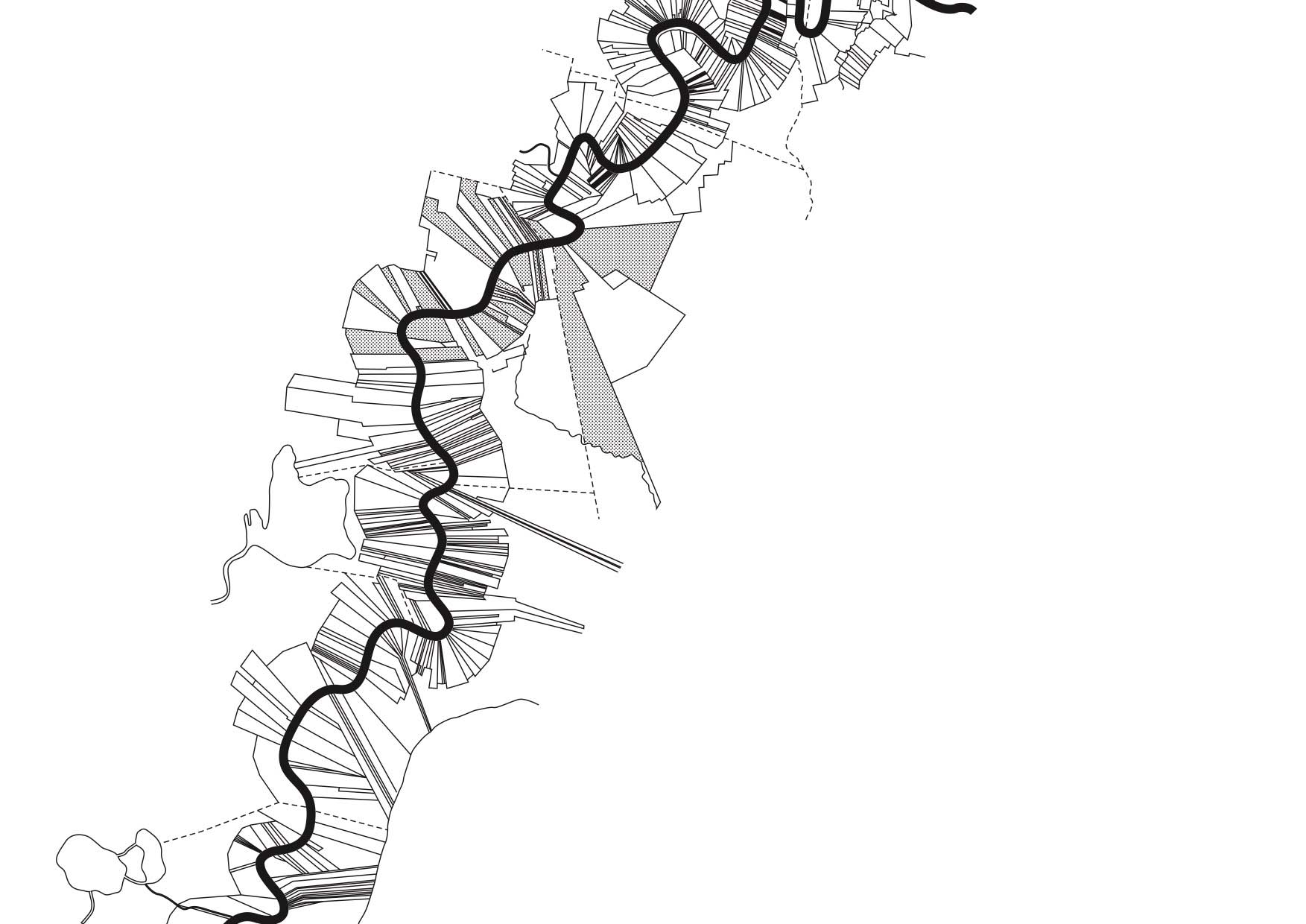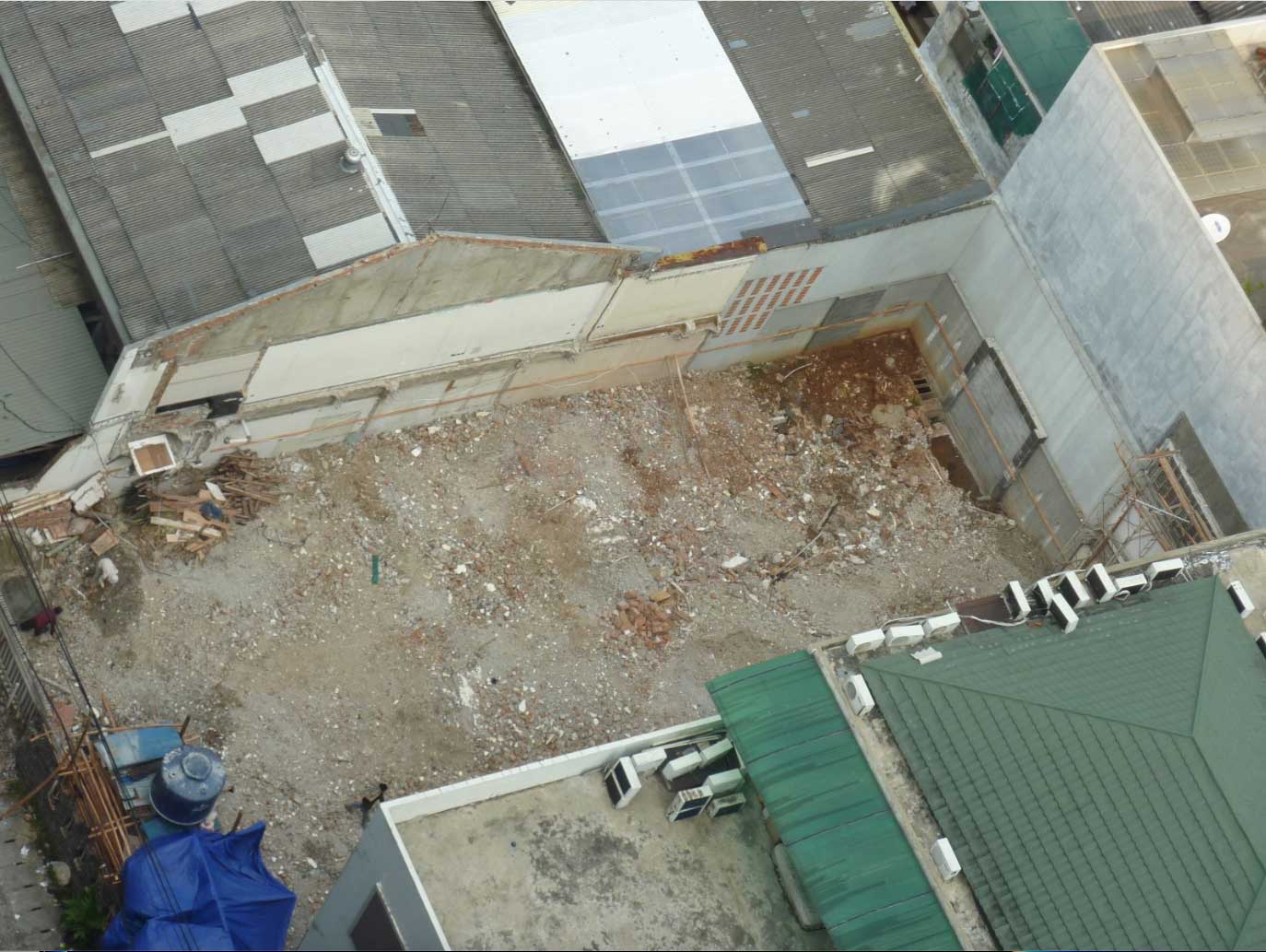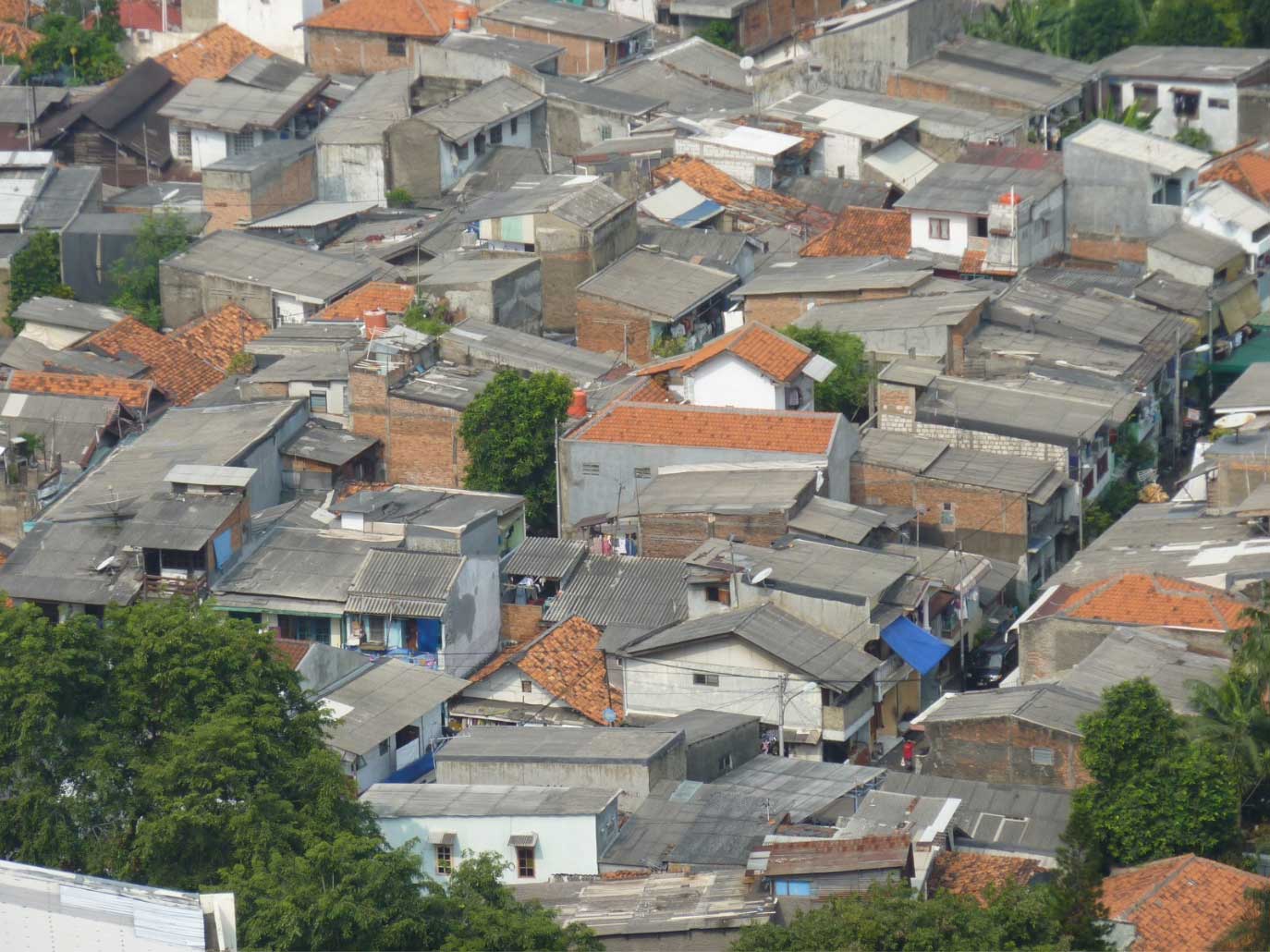Research project at the Future Cities Laboratory and lecture at the int. FCL conference in 2013.
The Politics of Land – Jakarta Case
From traditional, communal right to individual right.
The world’s population can basically be divided into two groups: those who own the land they stand on and those who do not. The question of land ownership is one of the most interesting issues in any kind of urban discourse. It is highly political, because with land ownership go power, individual freedom and coercion, borders, territories, inclusion and exclusion – the general division between private and public spheres. The whole idea of the city can be based on land and its ownership.
In many parts of the world, the question of land ownership and the associated legal system has become quite clear and obvious. There, people have started to think about possible trade-offs and to undermine the deterministic power of the monolithic concept of ownership. „Sharing“ becomes the key word, and the idea of mixing public and private space has been a fundamental motivation of urbanism ever since.
But now there are places like Jakarta. It is the capital of Indonesia, a country where not so long ago the question of land was based exclusively on traditional rights, with all the land belonging to certain collectives such as village communities, extended families and the like. The colonial period did not necessarily change this concept, but only complicated it by adding colonial rights to the land and certain areas, leading to confusion and legal dualisms.
Today, however, private land ownership is inevitable. The transition from traditional (communal) law to individual rights to land is already underway and even enshrined in the country’s legal system. This transition often leads to unclear situations of „involuntary division“ of land: several parties claim the right to a certain piece of land at the same time. The land in question then belongs twice and is often used twice.
For obvious reasons, the Jakarta study is extremely interesting from the point of view of general land use. In specific ways that are not yet fully predictable, it is also interesting to see how the ongoing ambiguity of land ownership is changing the city in terms of its morphology and organisation. The research discusses a number of cases in the city of Jakarta. They differ in terms of urban context and typology, ownership, parties involved, and concern urban disputes that are not necessarily singular in nature. These cases resemble classic crime stories in which there are perpetrators and deceived parties. However, the parties and their roles change from case to case. Sometimes it is the builder who tries to cheat and outdo the others. Other times it is the authorities or the individual homeowners who cause certain „irregularities“. All of them try to navigate the diffuse legal situation of the land they claim or have been using for years and gain advantages.
- Research project in cooperation with Tarumanagara University, Jakarta.
